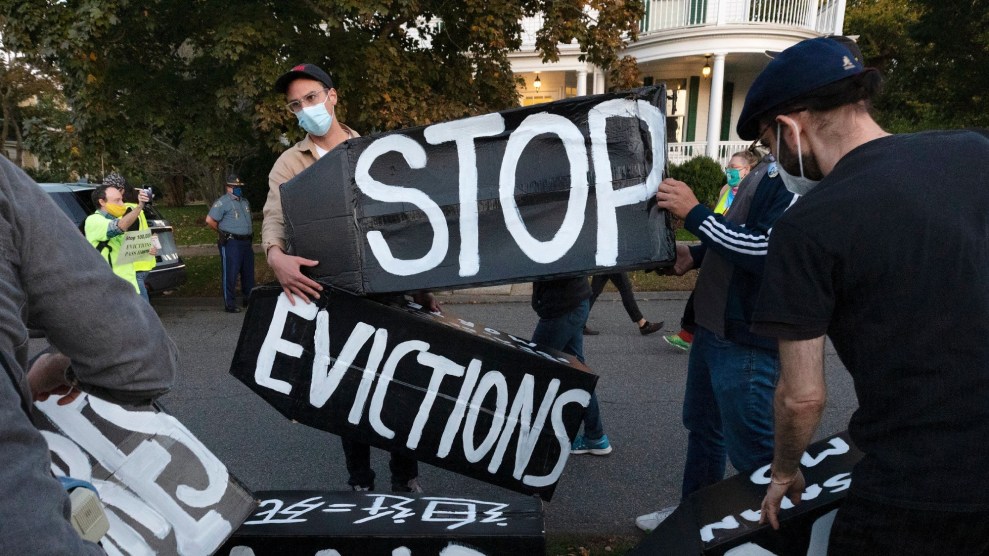
Michael Dwyer/AP
On Wednesday, a federal judge invalidated the national eviction moratorium first enacted at the start of the pandemic and most recently extended by the Biden administration through the end of June.
Though the moratorium has been challenged in a number of courts, the ruling from Judge Dabney Friedrich of the US District Court for the District of Columbia is the first to nullify the moratorium on a nationwide basis. Friedrich wrote in his decision that the Public Health Service Act—which the Centers for Disease Control cited to issue its original moratorium—does not give the agency authority to implement an eviction freeze as a national health measure.
“Because the plain language of the Public Health Service Act unambiguously forecloses the nationwide eviction moratorium, the Court must set aside the CDC Order,” wrote Friedrich, who was appointed by former President Donald Trump .
The case was filed by a group of realtors from Alabama and Georgia, who said that the eviction moratorium was causing landlords like their association members to lose billions in unpaid rent.
According to the most recently available census data from April, at least 6.9 million households—and likely millions more—are currently behind on rent. These households are disproportionately Black and Latino, according to an analysis by the Center on Budget and Policy Priorities. The eviction moratorium has helped millions of these renters stay in their homes if they’re facing economic hardship during the pandemic. The latest stimulus package, passed by Congress in early March, allocates $45 billion in rental assistance. Biden’s CDC extended the moratorium through the end of June, in part to leave time to roll out these rent relief dollars. According to the Wall Street Journal, the White House has said it will weigh in on the ruling and what this could mean for renters later on Wednesday.
















